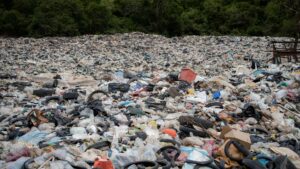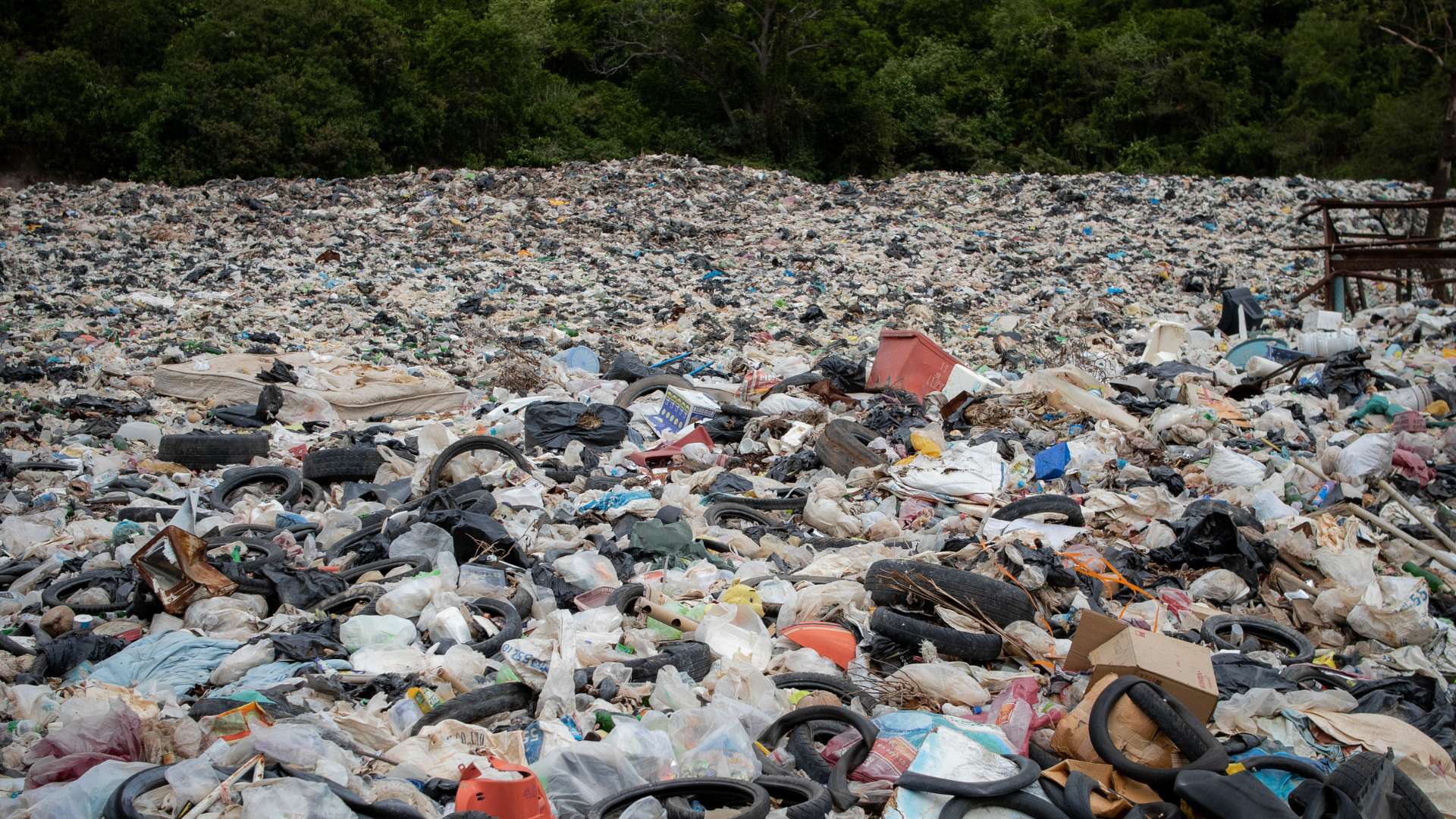 The three-year-long negotiation process for a Global Plastics Treaty has reached a stalemate, concluding after 11 days of talks at INC-5.2 in Geneva. The negotiations, which began on August 5, 2025, aimed to refine the Chair’s Text from December 2024 with the objective of adopting a legally binding global treaty. The session faced an immediate hurdle as it retained the same decision-making process as previous meetings: requiring full consensus from all parties. Many countries, particularly those seeking an ambitious and effective treaty to curb plastic pollution, raised concerns that this process has repeatedly proven flawed.
The three-year-long negotiation process for a Global Plastics Treaty has reached a stalemate, concluding after 11 days of talks at INC-5.2 in Geneva. The negotiations, which began on August 5, 2025, aimed to refine the Chair’s Text from December 2024 with the objective of adopting a legally binding global treaty. The session faced an immediate hurdle as it retained the same decision-making process as previous meetings: requiring full consensus from all parties. Many countries, particularly those seeking an ambitious and effective treaty to curb plastic pollution, raised concerns that this process has repeatedly proven flawed.
The Tug of War
Petrostates and petrochemical-producing countries like the U.S., the Russian Federation, Saudi Arabia, and Iran worked meticulously to strip the text of any language related to reducing production or eliminating chemicals of concern in plastics. These nations informally coalesced under the ‘Like-Minded Group’ (LMG). They were opposed by more than 100 countries—including EU nations, African states, Pacific Small Island Developing Nations, and Latin American countries—which demanded an ambitious treaty addressing plastics across their entire life cycle. This bloc, known as the ‘High Ambition Coalition’ (HAC), supports measures from production to disposal. It is important to note that these are not formal coalitions, and India backs the LMG.
The Battle Over the Scope
The LMG advanced a limited interpretation of the United Nations Environment Assembly’s (UNEA) resolution 5/14, which was passed in Nairobi in 2022 to end plastic pollution through a full-life-cycle approach. The LMG strongly advocated for removing any language referring to upstream activities—the extraction and production of plastics. They argued that production does not fall under the resolution’s scope and insisted the treaty focus solely on consumption and waste management. This position was seen as an outright insult to communities living near petroleum, petrochemical, and plastic industries worldwide.
In response, Hairu Nisha, a journalism student and photographer residing near the Manali Petroleum and Petrochemical hub in Chennai stated: “Our lives amidst the petrochemical industries are intertwined with frequent toxic gas leaks, crude oil spillages, and contaminated land, air, and water due to emissions and effluents released from these industries that give birth to ‘Plastics.’ Plastic is now everywhere. Despite imposing plastics on our lives from birth to death, being dismissive of the fact that plastic production is a problem is hugely disrespectful of our life-and-death struggles.”
The Stakes for India: Health, Waste, and Climate
The failure to secure a strong, binding treaty has profound and immediate implications for India, a country already grappling with the triple burdens of health crisis due to plastic pollution, climate vulnerability, and rapid industrial expansion.
First, Health. Plastic is nothing but fossil fuels mostly made from Oil and Natural Gas. Communities living near petroleum and petrochemical hubs in places like Chennai, Gujarat, Haldia, Odisha, etc., are on the frontlines. They breathe in the toxic emissions and effluents from production and are then exposed to the chemicals of concern in the plastic products themselves. Without a strong treaty, there is no global pressure to protect them. Their health is being sacrificed for profit.
Second, our Waste Crisis. According to a study published in Nature Journal, India generated over 9.3 million metric tonnes of plastic waste in the year 2024. Our systems are completely overwhelmed. A treaty that only focuses on waste management, as the LMG advocates, puts the entire burden and cost of cleanup on our cities and taxpayers. It lets the massive corporations producing this stuff off the hook.
And third, our Climate Goals. The fossil fuel industry is betting its future on plastic. India is a prime target for a massive petrochemical expansion. This locks us into a high-pollution future and makes it almost impossible to meet our net-zero targets. This isn’t just a plastic treaty; it’s a climate treaty too.
An Attempt to Admit the Treaty to the ICU
Research clearly shows that plastic is not only harmful to the environment but also hazardous to human health. Plastics are estimated to contain over 16,000 chemicals, a quarter of which are hazardous to human health. Despite these established facts, the Chair’s Text released during INC-5.2 saw the removal of a standalone health article (previously Article 19 in the December 2024 draft), along with language on primary polymer production, transparency for chemicals of concern, and production reduction. Although HAC nations like Brazil and Costa Rica tabled strong proposals for the health article, and despite advocacy from CSOs and Indigenous Peoples’ groups, the LMG countries insisted that health fell outside the mandate of UNEA 5/14. This move feels like a death trap for a treaty that has yet to be born.
No Treaty is Better Than a Bad Treaty
In the final plenary, held in the early hours of August 15, more than 100 countries rejected the latest Chair’s Text, citing the health and well-being of current and future generations. The HAC countries criticized the text for being imbalanced, lacking mentions of production caps or listing chemicals of concern, and reducing the treaty to a weak waste management framework. Although we are left without a treaty after six rounds of negotiations and nearly $40 million spent on the process, it is hopeful to see over 100 countries united in support of binding measures including plastic production cuts, phase-outs of harmful chemicals, a dedicated health article, and a strong financial mechanism.
From a Sense of Hope to Action
The INC-5.2 negotiations were adjourned without dates or a location announced for the next round. Experts warn that without a change in the decision-making process—from consensus to a voting procedure—the talks risk remaining deadlocked, preventing an ambitious outcome. With the INC-5.2 text rejected by the majority of nations, the December 2024 Chair’s Text is expected to remain the basis for future negotiations. Although a bad treaty has been averted, the continued absence of any treaty is an alarm bell in itself. Time is ticking as the plastic catastrophe grows. The sooner we secure an ambitious and effective treaty, the better our chances of controlling plastic pollution.
Centre for Financial Accountability is now on Telegram. Click here to join our Telegram channel and stay tuned to the latest updates and insights on the economy and finance.

